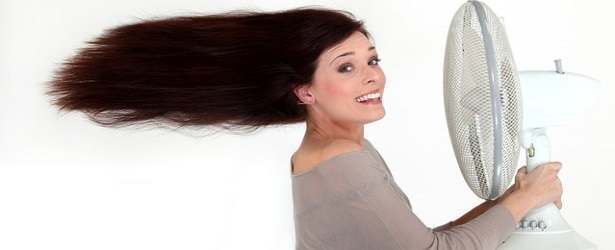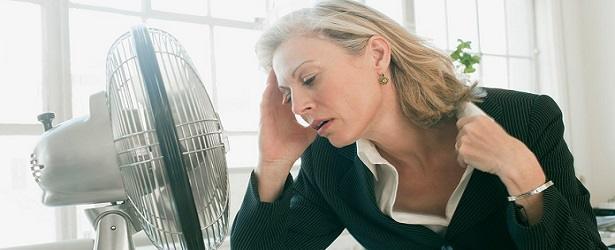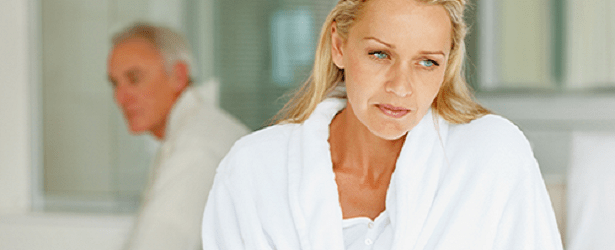Balance Point is relatively good at alleviating many of menopause’s symptoms, but it’s is actually more of a multi-vitamin for women of menopause age. This is why we gave it our number five rating.
Author: webby
BioMed Health Femi Yin Menopause Review
Femi-Yin is an herbal supplement that is indicated for the relief of symptoms associated with hormonal imbalances, such as menopause. It claims to provide (and does so with several spelling errors) relief from symptoms such as:
- Hot flashes
- Night Sweating
- Mood Swings
- Irritability
- Vaginal Dryness
- Sleeplessness
- Anxiety
- Fatigue
Femi-Yin claims to be able to make you feel like yourself again, so naturally, we decided to conduct some research on Femi-Yin.
BioMed Health Femi Yin Menopause Formula
Femi-Yin contains the following ingredients:
- Rehmannia– Rehmannia helps to nourish the blood and can also assist the heart and liver.
- Asiatic Dogwood- This plant can strengthen the kidney and preserve fluids vital to the body.
- Chinese Yam- The chinese yam can improve the digestive system.
- Tree Peony Bark- Tree Peony Bark can help cool the blood and clears heat in the liver.
Dosage
The recommended dosage for Femi-Yin is 1 tablet daily, which is nice, considering some menopausal relief formulas recommend up to 3 tablets, even twice daily.
Price
The price of one bottle of Femi-Yin is $27.99. Each bottle of Femi-Yin contains 60 tablets. One bottle of Femi – Yin will last for two months.
BioMed Health Femi Yin Menopause Guarantee
The company the makes Femi-Yin states on their site that they offer a 30 day refund, but only on some products. They do not tell you which products though. So it is unknown whether or not Femi-Yin can be refunded.
Conclusion
Femi-Yin makes several claims that would be quite welcomed by most menopausal women, however there are several factors about their presentation alone that will keep success away from the supplement. The products website is poorly designed and loaded with spelling and grammar errors. The product may or may not come with a guarantee, as one is mentioned but only for specific, and undisclosed, products. The ingredients are not bad, but despite their natural health benefits, are not proven to be effective or beneficent for menopausal women.
Click here to learn about our Top Menopause Treatment Products.
About Hot Flashes
Hot Flashes & What to do about them
Hot flashes are common symptoms of perimenopause and menopause that can hit at any time, day or night. While hot flashes can be highly uncomfortable, they are not at all life-threatening.
What Is A Hot Flash?
A hot flash, also called a hot flush, is a sudden and momentary sensation of heat surging through the body. It may be accompanied by sweating or a red, flushed face. No one is really sure what causes hot flashes, but they may be linked to changes in circulation during menopause. Hot flashes happen when blood vessels on the skin’s surface dilate in order to cool, causing the face to flush and turn red. Some women sweat, which helps their body to cool; or they might get chills or a rapid heart beat. Some experience hot flashes at night. These “night sweats” are particularly uncomfortable, and they can interfere with your ability to sleep.
Every woman experiences hot flashes differently. Some women only get hot flashes for a short period of time during menopause. Others endure them for a much longer period of time. Some women may even continue to suffer through hot flashes for their entire lives. But for most women, hot flashes decrease over time and eventually stop as they age.
Avoiding Hot Flashes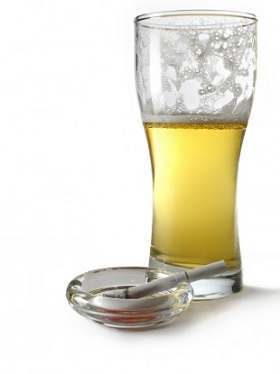
It is unlikely that you’ll be able to completely get rid of hot flashes or night sweats, but there are some things that may trigger hot flashes or make them worse. When possible, try to avoid or cut down on the following things:
- Alcohol
- Caffeine
- Clothing that is too tight
- Stress
- Cigarette smoke
- Hot weather
- Spicy foods
Any of these may induce a hot flash or can make hot flashes worse. Avoid as many of these things as you can while undergoing menopause to reduce the frequency and severity of the hot flashes.
Ways to Reduce the Severity of Hot Flashes
Some of the following tips aim to, at the very least, trying to keep hot flashes from becoming too uncomfortable and intense:
- Stay cool – Keep the temperature in your home cool, particularly at night: keep a fan in the bedroom to help you stay cool while you sleep.
- Exercise – Get plenty of exercise to help get your blood flowing; swim, jog, walk,
or ride a bike. - Cooling pillows – These pillows help lower your temperature while you sleep.
Conventional vs Alternative Hot Flashes Treatments
Types of Hot Flash Treatments
When talking about menopause, inevitably, every woman mentions hot flashes. It is probably the most frequently experienced and possibly most troublesome symptoms of menopause. If you are one of the lucky ones, you may only experience mild sweating and sensations of heat, lasting no more than a year or so. Other, not so lucky women suffer much greater and far lengthier hot flashes, which may even get worse over time.
What Causes Hot Flashes?
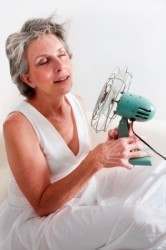 Hormone changes in the body are the primary culprit of the sweating and heat women feel when they experience hot flashes. The sudden reduction in the amount of estrogen in the body causes the hypothalamus, the part of the brain that controls the body’s temperature, to stop functioning properly, causing hot flashes and other menopausal symptoms.
Hormone changes in the body are the primary culprit of the sweating and heat women feel when they experience hot flashes. The sudden reduction in the amount of estrogen in the body causes the hypothalamus, the part of the brain that controls the body’s temperature, to stop functioning properly, causing hot flashes and other menopausal symptoms.
A hot flash is often described as the heat a woman feels in her face and upper part of her body. In certain instances, the hot flash can be preceded by a sensation of cold. Many women may also notice their skin changing color: their face may become redder due to the heat. Commonly, excessive sweating, headaches, or feeling lightheaded or nauseous may also accompany the episode.
Women may experience a much higher body temperature, weakness, or nervousness. In some cases, she may feel like she is experiencing a heart attack, particularly if the sweating is accompanied by a choking sensation or irregular heartbeats.
The duration and intensity of hot flashes can be unpredictable; many women turn to their doctors to help them cope with more severe symptoms. If you are looking for medical help for your hot flashes , you can choose between either traditional therapy or natural treatments.
Traditional Treatments
Hormone replacement therapy (HRT) is a common traditional treatment for menopause symptoms. HRT substitutes the hormones progesterone and estrogen that the female body loses during menopause, widely thought to be the primary cause of hot flashes. HRT replaces these hormones, which your body needs, thus alleviating problems such as anxiety, mood swings, and sleeping problems, in addition to the hot flashes. Hormone replacement treatment has helped lots of menopausal women; however, it does involve a certain health risks. Women who smoke, and women taking oral contraceptives or other substances high in estrogen are at a greater risk of blood clots when undergoing HRT. Other negative side effects include increased risks for: 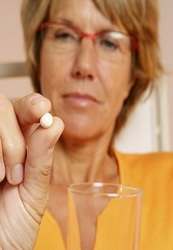
- Heart disease
- Pulmonary embolism
- Stroke
- Deep vein thrombosis
- Breast cancer
- Endometiral cancer
You can decrease most HRT related health risks by quitting smoking. A combination of progesterone with estrogen may also lower the risk for endometrial cancer. Applying hormone creams or patches may also prevent blood clots.
Natural Treatments
Natural treatments for hot flashes are growing in popularity. Healthy eating habits and taking herbs can have the same results as prescription drugs, but without the adverse side effects traditional medication can have. A well-balanced diet, avoiding caffeine-laden drinks and alcohol which can trigger hot flashes, and engaging in plenty of physical activity can reduce or even relieve completely some women’s menopause symptoms.
Dealing With Hot Flashes
How to Deal with Hot Flashes
An Inevitable Part of Menopause
Be aware of what to expect before you enter menopause. Most of the symptoms of this stage in a woman’s life can be unpleasant and difficult to deal with, and may even cause problems in your personal relationships. If you get through this transition without experiencing hot flashes, consider yourself one of the lucky few. These temperature fluctuations are a frequent symptom of menopause for the vast majority of women throughout the word, so scientists are seeking out the most effective relief for this common, yet uncomfortable phenomenon.
No one particular cure eliminates hot flashes. Hormone replacement therapy is frequently prescribed, particularly when symptoms become too much to bear. Hormonal therapy however, is often contraindicated, or a woman may opt not to take it, so her physician may try different natural remedies to identify the remedy that brings the most efficient relief to her hot flashes.
Natural Methods to Controlling Hot Flashes
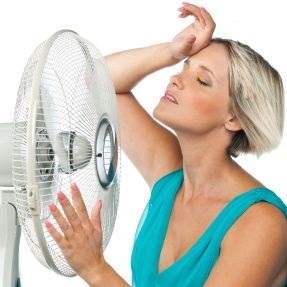 The good news is that there are a number of excellent natural products for hot flashes; if one doesn’t work for you, try a different one or even a combination of different remedies to reduce hot flashes or even eliminate them altogether.
The good news is that there are a number of excellent natural products for hot flashes; if one doesn’t work for you, try a different one or even a combination of different remedies to reduce hot flashes or even eliminate them altogether.
Nutrition
The key to battling menopause menopause symptoms is proper nutrition. Stick to a diet enriched with important vitamins, nutrients, and minerals and enhanced with necessary herbal supplements.
Vitamins
Taking the right vitamins is crucial for both women approaching menopause as well as women already going through various menopause symptoms. Take the recommended daily intake of vitamins E, B complex, and C. Aside from being a good defense for hot flashes, vitamin E also fights off certain heart conditions. Vitamin C can also directly prevent hot flashes, while vitamin B compound lowers stress, which can be a trigger for hot flashes.
Minerals
There are a few key minerals that alleviate hot flash symptoms: selenium is thought to support vitamin E, so these two substances are often taken in combination. Other helpful minerals include magnesium, calcium, and zinc. You may be able to get your daily dosage of minerals and vitamins with a multivitamin plus mineral product.
Herbal Remedies
Products containing a variety of plants and herbs frequently combat hot flashes. The commonly recommended herbs listed below can help align female hormones into balance as well as reducing hot flashes:
- Chinese licorice root
- Dong quai root
- Flax seed oil
- Rehmannia root
- Chaste tree berry
Other herbs such as ginger root, white peony, lovage root, and codonopsis root act differently on the body, but are still helpful in combating hot flashes.
Isoflavones
Finally, become familiar with isoflavones, compounds often referred to as phytoestrogens, due to their similarity to the female hormone estrogen. Soy and soy products are a good source of isoflavones. They are available in supplement form as well.
When searching for the right treatment for you, don’t be afraid to experiment. Try these natural remedies to see how your body reacts to them, and whether menopausal symptoms like hot flashes respond when taking them. There is no one magical cure; ultimately you will find relief that fits your body, your symptoms, and your needs.
Early Menopause – When Reproductive Years End Prematurely
Early or Premature Menopause
Early menopause, or premature menopause, is when ovaries’ function is abruptly terminated, much earlier than is supposed to happen. In general, early menopause hits women under 40, but can actually occur at any time after the first menstrual period.
Causes of Early Menopause
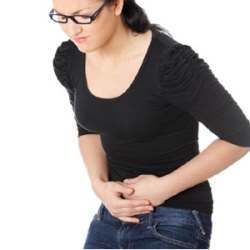 Although ovarian function can cease spontaneously and cause early menopause on its own, premature menopause most frequently occurs as a result of medical treatments and procedures. It could be a side effect in any woman who has had an oophorectomy, where the ovaries have been surgically removed. In these cases, the symptoms appear immediately as a result of a sudden decrease in female hormones. Women who undergo a hysterectomy—the surgical removal of the uterus—report similar symptoms.
Although ovarian function can cease spontaneously and cause early menopause on its own, premature menopause most frequently occurs as a result of medical treatments and procedures. It could be a side effect in any woman who has had an oophorectomy, where the ovaries have been surgically removed. In these cases, the symptoms appear immediately as a result of a sudden decrease in female hormones. Women who undergo a hysterectomy—the surgical removal of the uterus—report similar symptoms.
Surgeons may remove just the uterus, leaving the ovaries intact, where they continue to produce estrogen, the female hormone. Even so, surgery in the pelvic area can sometimes damage the blood supply to the ovaries, interfering with their ability to function. This can trigger menopause much sooner than it should. Unlike with oophorectomy, symptoms of hysterectomies do not occur suddenly and are not immediately severe. The hysterectomy itself triggers premature menopause later in life, whether the ovaries are saved or not.
Pelvic radiotherapy and chemotherapy treatment for cancer and other malignant illnesses can also contribute to early menopause. The dosage of these chemotherapeutics also plays a critical part in how much damage they may cause to the ovaries. While the ovaries area can tolerate a fair amount of radiation, receiving more than the required dose of radiation inevitably can result in early menopause.
In addition, certain chromosomal defects and genetic disorders can result in ovarian dysfunction and the total lack of ability to produce female hormones; women who have a family history of premature menopause as well as women who suffer from autoimmune diseases also are likely to exhibit signs of early ovarian dysfunction.
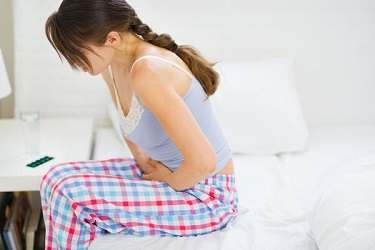 In order to diagnose this, the doctor will look for amenorrhea—the absence of menstrual periods for more than 12 months—as well as other symptoms of menopause, in addition to blood tests that measure female hormone levels and the substances that control the production of those hormones.
In order to diagnose this, the doctor will look for amenorrhea—the absence of menstrual periods for more than 12 months—as well as other symptoms of menopause, in addition to blood tests that measure female hormone levels and the substances that control the production of those hormones.
Consequences of premature menopause are virtually the same as those for natural menopause; they simply happen much sooner. However, they can cause major medical problems.
If a hormone substitute is not taken, the lack of female hormones can set off a number of gynecological problems such as a lack of libido, vaginal dryness, bone density loss, and a host of psychological problems, not to mention hot flashes and mood swings.
Maintain Regular Checkups
Every woman anticipating early menopause should undergo regular checkups and follow the recommended treatment, whether natural remedies, pharmaceutical, or hormonal treatments. This will help her bring her menopause symptoms under control and prevent any future complications.
Medical Menopause Treatments
Medical Menopause Treatments
Women struggling with menopause can take comfort in knowing that they have multiple treatment options available to them.Some treatments contain hormones, while others do not: each provides its own form of relief. Consult with your doctor to help you decide which type of treatment is best for you.
 Your treatment choices will typically depend on the frequency and severity of your symptoms, and whether these symptoms cause you any pain (note: while menopause often cause discomfort, menopause symptoms should never involve any pain). This article reviews a few available options you may want to ask your doctor about. These options involve both hormonal and non-hormonal treatments.
Your treatment choices will typically depend on the frequency and severity of your symptoms, and whether these symptoms cause you any pain (note: while menopause often cause discomfort, menopause symptoms should never involve any pain). This article reviews a few available options you may want to ask your doctor about. These options involve both hormonal and non-hormonal treatments.
Non-Hormonal Treatments
The following menopause treatments do not involve the use of hormones:
Antidepressant Medications can help control the emotional issues that frequently accompany menopause and help manage symptoms such as depression, hot flashes, mood swings, and irritability. Ask your doctor if antidepressants may be an option for you.
Clonidine is a medication commonly used to manage high blood pressure, but it can also help reduce the amount and intensity of hot flashes you experience. Some women experience side effects caused by low blood pressure during menopause.
Gabapentin is an anti-seizure drug that can help reduce the amount and intensity of hot flashes a woman may have. There are potential side effects to Gabapentin, including sleepiness, swelling, and dizziness.
Hormonal Treatments
Since menopause is caused by the reduction of female hormones, it is common to treat menopause symptoms with a variety of hormone therapies.
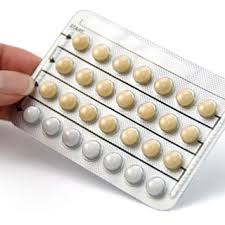 Birth Control Pills can help regulate your menstrual cycle throughout the perimenopause stage; they can also help control extremely heavy periods. However, if you have a history of blood clots or are a smoker, avoid birth control pills since they increase the chances of stroke.
Birth Control Pills can help regulate your menstrual cycle throughout the perimenopause stage; they can also help control extremely heavy periods. However, if you have a history of blood clots or are a smoker, avoid birth control pills since they increase the chances of stroke.
Progestin pills or Levonorgestrel IUD (Intrauterine Device) release a type of the female hormone progesterone inside the uterus via an IUD in order to reduce heavy or irregular menstrual periods during perimenopause. Some women report side effects from IUDs, however, so check with your doctor to be sure it is safe for you.
Low-dose vaginal estrogen can be taken in tablet, ring, or cream form. It reduces weakening of the vagina and urethra, and prevents vaginal dryness without putting high doses of estrogen into your body.
Hormone Replacement Therapy: HRT comes in a patch, a gel, a cream, a pill, or vaginal ring. Hormone replacement therapy can cause numerous side effects, so most doctors only prescribe the lowest doses to treat menopause symptoms.
There are a variety of medical options available to women to treat menopause symptoms. However, talk to your doctor to decide which option will work best for you. Menopause symptoms vary for every woman in their severity and duration, so the best treatment is unique for each woman. Each woman has her own individual blend of symptoms, so it’s up to you and your doctor to treat your individual symptoms most effectively.
Menopause Overview
An Overview of Menopause
Menopause is an inevitable stage of a woman’s life, where her reproductive cycles of menstruation come to an end. A woman’s body undergoes numerous changes, both as menopause nears, and even after the transition is over.
Two Kinds of Menopause
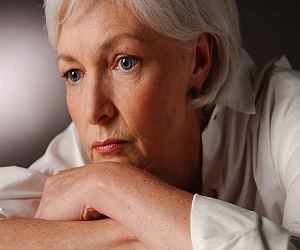 The ovaries hold a lifetime supply of eggs which each woman has from the day she is born. Ovaries also produce estrogen and progesterone, which regulate her ovulation and menstrual cycles.
The ovaries hold a lifetime supply of eggs which each woman has from the day she is born. Ovaries also produce estrogen and progesterone, which regulate her ovulation and menstrual cycles.
Women experience two different kinds of menopause: natural menopause or premature menopause. By the time a woman reaches her forties, her body naturally starts changing: her menstrual cycles diminish, and she experiences natural menopause.
But if, because of either surgical procedures such as a hysterectomy, or ovarian damage from or toward cancer treatment, premature menopause can occur before a woman reaches her forties.
Natural Menopause
Unless there are unnatural or medical circumstances, menopause is a natural, gradual process. The progression of menopause occurs in three phases:
- Perimenopause
- Menopause
- Postmenopause
Perimenopause begins several years before the actual onset of menopause, during which estrogen production is gradually reduced. As a woman gets closer to menopause, however, her estrogen levels start decreasing more quickly. When menopause finally hits, her ovaries stop releasing eggs. For many women, there will be an increase in the notorious hot flashes as well as other physical symptoms.
After menopause, in the postmenopausal period, women are more at risk for a variety of health issues due to their lack of estrogen. However, menopausal symptoms like hot flashes will start to diminish by this time.
Signs of Menopause
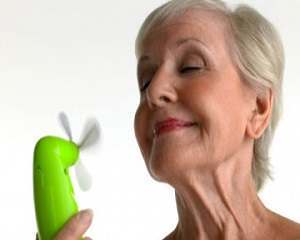 Hot flashes are one of the most common menopause symptoms, caused by an uncontrollable wave of heat that overwhelms the body, even when it is freezing. The severity of these hot flashes varies from woman to woman. In addition to hot flashes, some women experience irregular periods, or intermittent months where she may miss her period. Other symptoms include mood swings, insomnia, irritability, depression, or exhaustion.
Hot flashes are one of the most common menopause symptoms, caused by an uncontrollable wave of heat that overwhelms the body, even when it is freezing. The severity of these hot flashes varies from woman to woman. In addition to hot flashes, some women experience irregular periods, or intermittent months where she may miss her period. Other symptoms include mood swings, insomnia, irritability, depression, or exhaustion.
Some women endure physiological symptoms such as headaches, achy and painful muscles and joints, or heart palpitations. A reduced sex drive and vaginal dryness are also problems that many women suffer. When a woman starts to experience these changes in her body, she can check with her doctor to confirm whether menopause is the cause by taking a blood test to measure the follicle stimulating hormone or FSH level.
In addition, the doctor will conduct a physical examination, including performing a pap test and vaginal assessment, to corroborate the lab results and confirm that she is indeed going through menopause, and at which stage she is in the process.
Postmenopausal Complications
Health related complications associated with a lack of estrogen can include osteoporosis, heart disease, declining muscle tone, aging skin, changes in vision, and bowel and bladder issues. Preventative treatments are available to lower the risk and severity of these symptoms.
Menopause Supplements
Menopause Supplements
Menopause is a time of many changes in a woman’s life. Her body is transitioning between her fertile and infertile stages, which can wreak physical and emotional havoc, producing symptoms sometimes challenging to cope with. The good news is that there are a number of natural supplements that alleviate these symptoms, or at least keep them to a manageable level. This article lists a number of all-natural supplements and herbs known to help relieve the various symptoms of menopause.
Black Cohosh
 One of the more popular natural remedies for menopause symptoms, widely used in the United States, is black cohosh. A number of studies comparing this herb to a placebo have shown that it can be effective at ending the inevitable and aggravating hot flashes, which can interfere with a menopausal women’s ability to function. Use with caution, though, as it may be harmful to women with liver problems.
One of the more popular natural remedies for menopause symptoms, widely used in the United States, is black cohosh. A number of studies comparing this herb to a placebo have shown that it can be effective at ending the inevitable and aggravating hot flashes, which can interfere with a menopausal women’s ability to function. Use with caution, though, as it may be harmful to women with liver problems.
Flax Seed
Another complaint that many menopausal women have is night sweats. A natural cure for this symptom is flax seed, which can be effective in helping balance the hormones which can cause night sweats. However, not every woman who takes flax seed actually sees results. So it is not very commonly recommended, even though it does show positive results in a large number of cases.
Calcium
Bone deterioration is another common symptom of menopause. This can lead to serious problems if nothing is done to prevent bone loss. Women less than 51 years should take 1,000mg of calcium a day. Women 51 and older should increase their daily dosage of calcium to 1200mg. Doctors often recommend that you divide this total daily dose into multiple smaller ones taken throughout the day for maximum effect.
Vitamin D
This vitamin is equally important for women’s health. Make sure to take Vitamin D supplements in a sufficient dose, or spend at least fifteen minutes in sunlight each day.
Red Clover and Wild Yam
 Red clover is a frequently used, albeit less effective, treatment for menopause symptoms. This plant allegedly contains estrogen, which is a critical hormone lost during menopause. However, there is no consensus on these claims. Another natural remedy believed to balance female hormones is the wild yam.
Red clover is a frequently used, albeit less effective, treatment for menopause symptoms. This plant allegedly contains estrogen, which is a critical hormone lost during menopause. However, there is no consensus on these claims. Another natural remedy believed to balance female hormones is the wild yam.
Ginseng and St. John’s Wort
Both of these supplements claim to alleviate mood swings, which are another common complaint of women undergoing menopause: a complaint for both the bothered woman as well as the people close to her. Ginseng and St. John’s Wort can be combined with the black cohosh mentioned earlier.
There are a number of other potential solutions and supplements to help make menopause more bearable. Ask your doctor and research your options to find the best choice for you.
Menopause Symptoms
Menopause Symptoms
There are far more symptoms of menopause than you may be aware of. It’s not only about hot flashes and the end of your menstrual period. Here are a few of the many other symptoms that can accompany menopause:
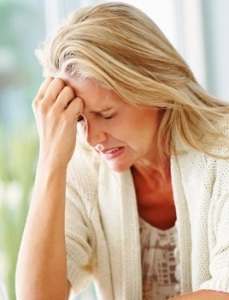 Lack of libido: Because of the hormonal imbalance that can occur during menopause, many women find they lose interest in sex altogether.
Lack of libido: Because of the hormonal imbalance that can occur during menopause, many women find they lose interest in sex altogether.
Vaginal Dryness: When this happens, it can cause discomfort. There are, however, over-the-counter lubricants that can help lubricate you during sex if necessary.
Moodiness: You can be cheerful one moment and bursting into tears the next. This is again due to hormonal imbalances. Mood swings are treatable, but check with your doctor first to ensure the symptoms are due to the menopause and not some other underlying condition.
Fatigue: Feeling weak, tired, and as though all your energy is sapped is common among women going through menopause. Ask your doctor about options for treating fatigue caused by the menopause.
Sleep Disorders: All the changes happening in your body can also occasionally cause you to have difficulty sleeping, and you may have problems falling or staying asleep.
Difficulty concentrating: Menopause can also cause us to lose focus on completing tasks, or create an inability to concentrate for a long period of time.
Dizziness: In certain cases, the hormonal imbalances may cause you to feel dizzy or lightheaded. While this is a normal symptom of menopause, it should be handled with caution.
Weight gain: You may find yourself putting on a few extra pounds during menopause. Regular exercise can help you keep off any weight you might find yourself gaining.
Brittle fingernails: Hormonal changes during menopause may cause your fingernails to become brittle and to break off easier than they did formerly.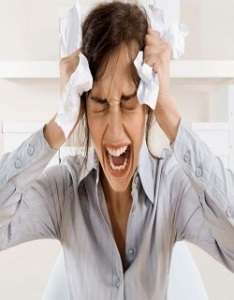
Depression: Women undergoing menopause often struggle with spells of depression. This can be brought on by the hormonal imbalances in your body. Check with your doctor if you find yourself becoming depressed.
Irritability: For some women, irritability is a normal part of menopause. Not everyone is affected by it, however; but be aware that it can happen.
Breast soreness: Women undergoing menopause sometimes find that their breasts are more tender than usual, where even a slight touch can feel painful or uncomfortable.
Women going through menopause can experience all or none of the symptoms listed here, but you should be aware of them. If you do find yourself experiencing any one of these symptoms, call your doctor about options that can help you maintain equilibrium and go through this period in your life with less discomfort and stress.

 Subscribe Now
Subscribe Now

